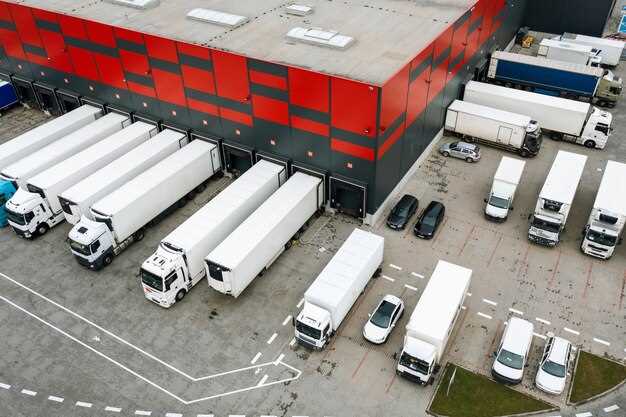
In the rapidly evolving automotive industry, the role of auto transport cannot be underestimated, particularly in the context of car dealerships. These establishments rely on efficient logistics to manage their inventory and meet customer demand. Understanding how auto transport influences dealership operations is crucial for enhancing productivity, reducing costs, and improving customer satisfaction.
Car dealerships face unique challenges regarding the transportation of vehicles from manufacturers to showrooms. The effectiveness of
auto transport directly affects the dealership’s ability to maintain optimal stock levels and respond swiftly to market trends. Timely delivery of vehicles ensures that dealerships can offer fresh and relevant selections to customers, thereby enhancing the shopping experience and fostering brand loyalty.
Moreover, the integration of advanced logistics solutions in auto transport operations can lead to significant efficiencies. From route optimization to tracking systems, modern technologies help dealerships streamline their processes and minimize delays. As dealerships strive to improve their competitive edge, the synergy between auto transport and dealership logistics emerges as a fundamental aspect of their operational strategy.
Optimizing Routes for Cost-Effective Vehicle Delivery

In the competitive landscape of auto dealerships, optimizing delivery routes is essential for reducing transportation costs and ensuring timely vehicle transfers. Efficient routing directly impacts the bottom line by minimizing fuel consumption, reducing vehicle wear, and improving customer satisfaction through faster delivery times.
Utilizing advanced route planning technologies, such as GPS and transportation management software, enables dealerships to analyze real-time traffic data and road conditions. This information allows for the dynamic adjustment of routes based on factors like congestion and weather disruptions. By leveraging these tools, dealerships can identify the most cost-effective paths for auto transport, ultimately leading to increased operational efficiency.
Another crucial aspect of route optimization is the consolidation of shipments. By grouping deliveries for multiple vehicles headed to similar destinations, dealerships can maximize transport loads and minimize the number of trips required. This strategy not only reduces costs but also contributes to lower emissions, aligning with sustainability goals that are increasingly important in today’s automotive industry.
Furthermore, scheduling deliveries during off-peak hours can enhance efficiency. By avoiding high-traffic periods, dealerships can ensure faster deliveries and further cut down on fuel expenses. Continuous monitoring and analysis of delivery patterns help dealerships refine their routes over time, adapting to changing conditions and maintaining cost-effectiveness.
Ultimately, investing time and resources into optimizing vehicle delivery routes not only streamlines logistics for auto dealerships but also enhances their competitive edge in the market. This strategic approach ensures timely deliveries, satisfied customers, and a healthier bottom line.
Managing Inventory Levels Through Streamlined Auto Logistics
Effective inventory management is crucial for automobile dealerships, as it directly impacts their ability to meet customer demand and maintain profitability. Streamlined auto logistics plays a significant role in optimizing inventory levels, ensuring that dealerships have the right vehicles available at the right time.
One of the primary advantages of efficient auto logistics is the reduction of lead times in vehicle delivery. By improving the coordination between manufacturers, transporters, and dealerships, it becomes possible to minimize delays and enhance the overall flow of inventory. A well-organized logistics system allows for real-time tracking, which enables dealerships to anticipate inventory needs and adjust their orders accordingly.
Just-in-time (JIT) inventory management is a strategy that can be effectively employed in the auto industry, particularly when logistics are streamlined. This approach allows dealerships to hold minimal stock while still fulfilling customer orders promptly. With reliable auto transport partners, dealerships can quickly replenish their inventory, reducing the costs associated with overstocked vehicles and increasing cash flow.
Furthermore, advanced technology such as data analytics and inventory management software can enhance the decision-making process within dealerships. By analyzing sales trends and customer preferences, dealerships can make informed choices about which vehicles to stock and when to bring in new models. This data-driven approach, combined with efficient logistics, ensures that inventory levels remain aligned with market demand.
Finally, building strong relationships with auto transport providers is vital for maintaining secure and flexible inventory management. Reliable transport partners can adapt to changing circumstances, such as unexpected surges in demand or supply chain disruptions. This flexibility enables dealerships to navigate challenges effectively, ensuring that their inventory levels remain optimal.
In conclusion, managing inventory levels through streamlined auto logistics not only enhances operational efficiency but also strengthens a dealership’s ability to satisfy customer needs and drive sales. Emphasizing collaboration, technology, and flexibility in logistics can significantly improve inventory outcomes for automobile dealerships.
Integrating Technology for Enhanced Tracking in Dealership Operations

In today’s competitive automotive market, logistics plays a crucial role in the efficient operation of car dealerships. Integrating advanced technology for enhanced tracking can significantly improve dealership logistics, particularly in the auto transport sector. Utilizing real-time tracking systems allows dealerships to monitor the location and condition of vehicles during transit, ensuring timely deliveries and reducing the risk of damage.
Implementing a GPS-based tracking system provides dealerships with valuable insights into shipping routes, travel times, and potential delays. This data enables managers to make informed decisions regarding inventory management and vehicle allocation. Moreover, integrating tracking tools with existing dealership management software allows for seamless communication between logistics personnel and sales staff, improving overall coordination.
Another significant benefit of technology integration is the ability to automate notifications. Customers can receive real-time updates about the status of their vehicle deliveries, enhancing their overall experience and building trust in the dealership. Transparency in the transport process also reduces anxiety associated with waiting for new vehicle arrivals.
Furthermore, employing blockchain technology in logistics can enhance security and traceability. Each vehicle’s transport history is recorded, allowing for verification of the shipment’s integrity and reducing the likelihood of fraud. This integration not only educates dealerships on their supply chain dynamics but also reinforces customer confidence.
In summary, embracing technology for enhanced tracking is imperative for car dealerships looking to optimize their logistics operations. By leveraging real-time tracking systems, automation, and innovative technologies like blockchain, dealerships can ensure efficient transport processes, improve customer satisfaction, and ultimately drive sales growth.



